Is 'Liking' on Facebook Protected Speech?
The Wasted Effort of Connecticut's Feeble Cop-Recording Bill
Viacom v. YouTube: The Second Circuit Punts on 'Right and Ability to Control'
Is It a Prior Restraint for Police to Delete Video of Their Conduct?
Privacy v. Public Access in the Emerald City
Introducing Guest Blogger Bryce Newell
Louis Vuitton v. Hyundai: Deconstruction of a Bad Trademark Decision
Copyright 2007-25 Digital Media Law Project and respective authors. Except where otherwise noted,
content on this site is licensed under a Creative Commons Attribution-Noncommercial-ShareAlike 3.0 License: Details.
Use of this site is pursuant to our Terms of Use and Privacy Notice.
content on this site is licensed under a Creative Commons Attribution-Noncommercial-ShareAlike 3.0 License: Details.
Use of this site is pursuant to our Terms of Use and Privacy Notice.


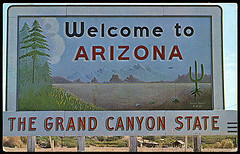 We are pleased to announce the expansion of the CMLP Legal Guide to cover the state of Arizona!
We are pleased to announce the expansion of the CMLP Legal Guide to cover the state of Arizona! Venkat Balasubramani and Eric Goldman, over
Venkat Balasubramani and Eric Goldman, over 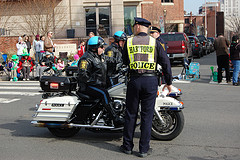 Connecticut, like most states these days it seems, has been having a problem with cops interfering with people photographing or filming them. Members of the Connecticut legislature are concerned about citizens being harassed for filming cops, and are working on passing a bill,
Connecticut, like most states these days it seems, has been having a problem with cops interfering with people photographing or filming them. Members of the Connecticut legislature are concerned about citizens being harassed for filming cops, and are working on passing a bill,  I'm not all that worried about YouTube's legal fate as such (I'm pretty sure Google can
I'm not all that worried about YouTube's legal fate as such (I'm pretty sure Google can 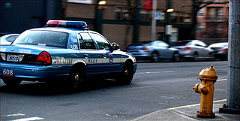 For the past few years here in Seattle, a fascinating debate has been brewing about the balance between government
transparency and citizens' privacy, particularly at the intersection of the state
Public Records Act and the state Privacy Act.
For the past few years here in Seattle, a fascinating debate has been brewing about the balance between government
transparency and citizens' privacy, particularly at the intersection of the state
Public Records Act and the state Privacy Act.
 I am excited to welcome Bryce Newell as a guest blogger!
I am excited to welcome Bryce Newell as a guest blogger!
 From the ever-growing file of trademark cases that are bad for free
speech,
From the ever-growing file of trademark cases that are bad for free
speech,  Federal Judge Marco A. Hernandez got a lot of attention and cyberchatter late last year when he held that blogger
Federal Judge Marco A. Hernandez got a lot of attention and cyberchatter late last year when he held that blogger  “RTs do not = endorsements.”
“RTs do not = endorsements.”
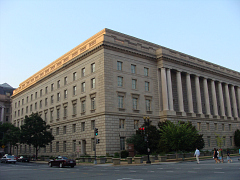
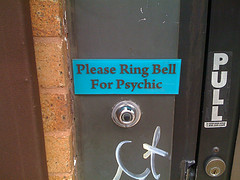 So this case slipped by me when it first came down in January, but it raises my ire enough to come back to a bit late. It's
So this case slipped by me when it first came down in January, but it raises my ire enough to come back to a bit late. It's  The All-Party Intellectual Property Group (APIP) in the United Kingdom
The All-Party Intellectual Property Group (APIP) in the United Kingdom 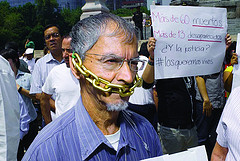 Thanks to its ongoing war against the drug cartels, Mexico is one of the most dangerous places in the world for a journalist to work.
Thanks to its ongoing war against the drug cartels, Mexico is one of the most dangerous places in the world for a journalist to work.
 If there is a polar opposite to organizations like ours, it is the intellectual property troll. And in the IP troll heirarchy, one of the trolliest has long been Righthaven, the self-described "pre-eminent copyright enforcer" that sued hundreds of bloggers and other Internet denizens apparently as part of its business model. If the DMLP, the EFF, Public Citizen, and the like are the Justice League, Righthaven would be in the Secret Society of Supervillians.
If there is a polar opposite to organizations like ours, it is the intellectual property troll. And in the IP troll heirarchy, one of the trolliest has long been Righthaven, the self-described "pre-eminent copyright enforcer" that sued hundreds of bloggers and other Internet denizens apparently as part of its business model. If the DMLP, the EFF, Public Citizen, and the like are the Justice League, Righthaven would be in the Secret Society of Supervillians.
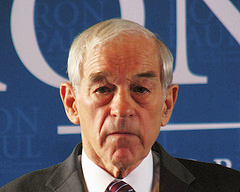 Ron Paul's presidential campaign has been having a rough go of it: He has yet to win a Republican state primary or caucus. But now his campaign's also-ran streak extends into the courtroom too, in a victory for the right to anonymous free speech.
Ron Paul's presidential campaign has been having a rough go of it: He has yet to win a Republican state primary or caucus. But now his campaign's also-ran streak extends into the courtroom too, in a victory for the right to anonymous free speech.
 So, have you heard about the little legal scuffle between Louis Vuitton and the UPenn Law School?
So, have you heard about the little legal scuffle between Louis Vuitton and the UPenn Law School?
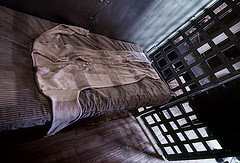 At a recent presentation during which I reviewed a number of cases and
court rule changes regarding juror use of social media and the Internet
during trial, an audience member asked me why American courts appeared
to be so lax in the face of such juror misbehavior, such as the Texas
case in which a juror who sent a "friend" request to the defendant in a
personal injury case
At a recent presentation during which I reviewed a number of cases and
court rule changes regarding juror use of social media and the Internet
during trial, an audience member asked me why American courts appeared
to be so lax in the face of such juror misbehavior, such as the Texas
case in which a juror who sent a "friend" request to the defendant in a
personal injury case 